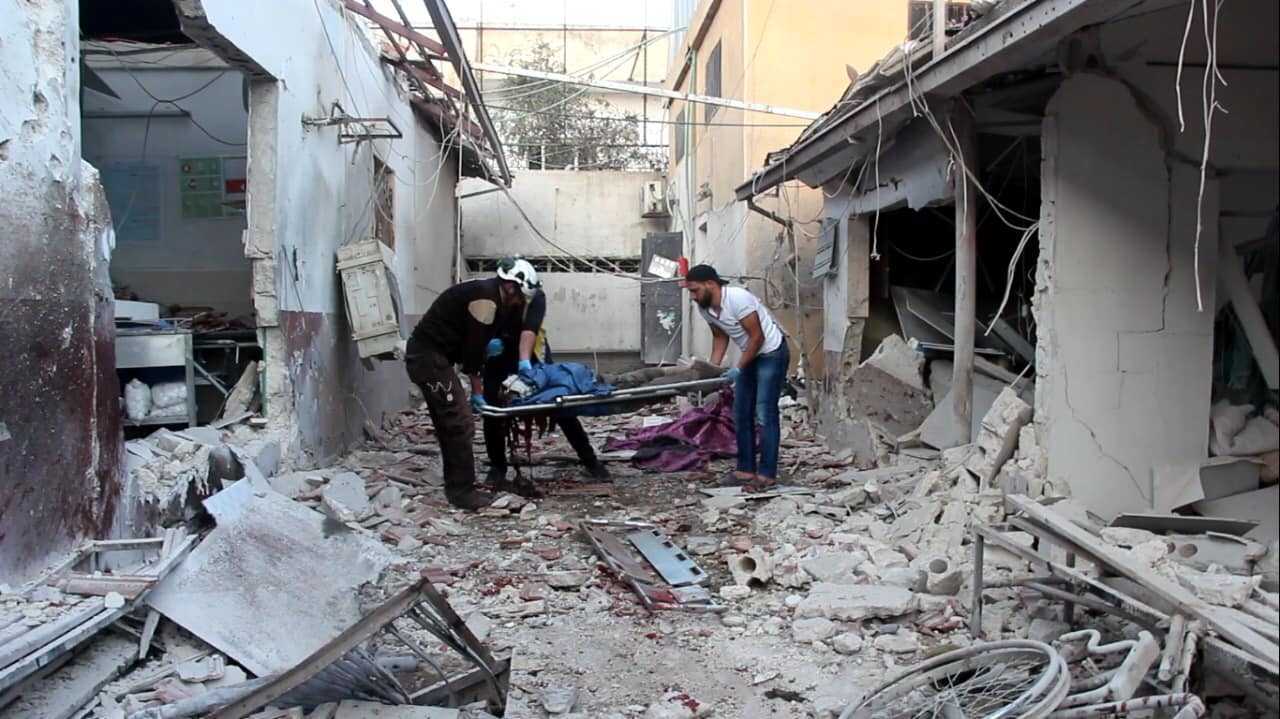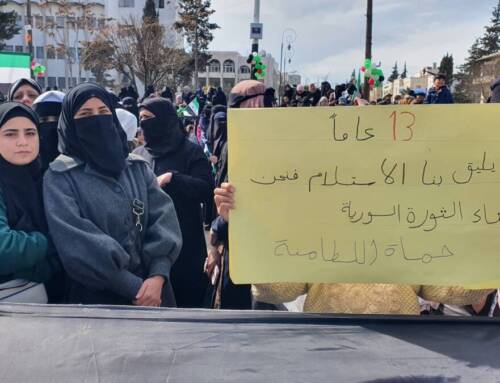Who is behind the massacre at Afrin’s al-Shifa Hospital?
The appalling targeting of a hospital in Afrin immediately triggered accusations against the SDF. However, the location from which the rockets were launched is controlled by both Assad regime and SDF forces.
14 June 2021
AMMAN — “Suddenly, the world set alight. The ceiling collapsed and the air became so dusty that you couldn’t see anything,” Muhammad Abdulazim, a staff member of al-Shifa Hospital in Afrin in northern Aleppo province, told Syria Direct in the aftermath of an attack against the hospital on Saturday.
Abdulazim sustained a minor wound on the head but described atrocious scenes outside the hospital as “body parts mixed together.”
The appalling attack immediately triggered accusations against the SDF and the regime because both maintain forces in the area from which the attack was launched.
A “double-tap” bombing
The strategy behind a “double-tap” bombing is to target those responding to the first strike, inflicting casualties on emergency responders and survivors of the first attack.
On Saturday, a first strike targeted residential neighborhoods in the city of Afrin, which is under the control of the Turkish-backed Syrian National Army (SNA). According to Abdulazim, Syrian Civil Defense ambulances evacuated casualties of the attack to the al-Shifa Hospital. Families of those wounded and killed in the first strike had also gathered there.
Around 45 minutes later, the second strike hit al-Shifa Hospital in the city center, where the casualties from the first strike had been taken. According to Naim Qassem, the Director of the Civil Defense (White Helmets) center in Afrin, 15 persons were killed and 43 more injured in the al-Shifa bombing. Among these, two medical workers were killed and three were injured, and the hospital’s laboratory and maternity and emergency wards were destroyed.
Is the SDF or the regime responsible?
The rockets that hit Afrin were launched from an area partly controlled by the regime and partly by the Kurdish-led Syrian Defense Forces (SDF) in Tal Rifaat, northern Aleppo province. Kurds currently constitute 35% of the population in Afrin, estimated to be between 400,000 and 500,000 people in total.
Nonetheless, Turkey was quick to accuse the SDF of being behind the attack. “The terrorist attack on al-Shifa Hospital in Afrin showed the brutality and treachery of the YPG [Kurdish People’s Protection Units], the backbone of the SDF/PKK [Turkish Kurdistan Workers’ Party],” Turkish President Recep Tayyip Erdogan said on Sunday.
Turkey’s accusations were echoed by Youssef al-Hamoud, the spokesman of the SNA, which controls the Afrin region following the expulsion of the Kurdish People’s Protection Units (YPG) in the Turkish-led “Operation Olive Branch” in January 2018.
“The separatist terrorist gangs PKK, PYD and SDF targeted residential neighborhoods and al-Shifa Hospital in the city of Afrin with rocket launchers at 6 and 7 p.m,” al-Hamoud told Syria Direct. The rockets, he added, “were launched from two points under the control of SDF militias: Burj al-Qas, and the al-Arash area located north of the village of Jalbul.”
In response, the SDF denied that “any of its forces were responsible for/or involved in, the tragic attack in [a] hospital in Afrin.” In a post on Facebook, Mazlum Abdi, the general commander of the SDF, expressed sadness for “the loss of innocent lives” and condemned “the attack without reservation,” adding that “targeting hospitals is a violation of international law.”
However, Ahmed Hamadeh, a military and strategic analyst, stressed that “the beneficiary of the chaos and killing is the Assad-SDF criminal system, so they can claim that the region does not enjoy security.”
“The SDF mimics the [double-tap strategy] used by the regime,” Hamadeh told Syria Direct. “The SDF and Assad’s strategies of aggression are intertwined in the region, and they have joint positions in Tal Rifaat.”
Conversely, the fact that the attack was launched “from areas controlled by both the regime and the SDF makes it difficult to accurately determine the responsible party,” Qassem highlighted.
This cautious evaluation was shared by Fadel Abdul Ghani, the director of the Syrian Network for Human Rights (SNHR), who suggested the regime was the one responsible for the strike, since it “possesses the necessary accuracy, and there have already been attacks targeting hospitals in the city; we noticed that the regime uses its previous attacks to correct the coordinates [of following strikes].”
Still, “it will be difficult to ascertain responsibility for the strike until we recover the remnants of the rockets used, determine the coordinates of the launch, and interview witnesses,” Abdul Ghani told Syria Direct. “In the coming two days, the SNHR intends to issue an investigative report on the incident.”
This report was originally published in Arabic and translated into English by Lyse Mauvais.







